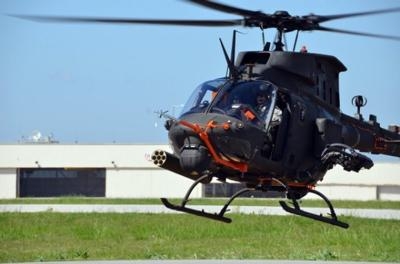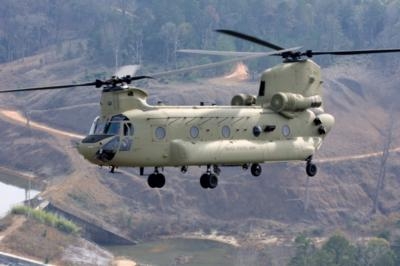Fri, Dec 05, 2014
Frost & Sullivan: Sector Reaching A Balance Between Multi-Role And Specific Mission Requirements
Repeated budget cuts and frozen orders have blurred promises of market recovery in the global military market, especially across Western regions. The adoption of remotely piloted aircraft systems seems to make manned helicopters further irrelevant. Nevertheless, unrivalled vertical take-off and landing capabilities as well as strong mission efficiency rates will sustain interest in military rotorcraft.

New analysis from Frost & Sullivan, Global Military Helicopters Market Assessment, finds that the market earned revenues of $25.43 billion in 2013 and estimates this to reach $33.37 billion in 2023. New platform procurements will grow at a compound annual growth rate of 2.8 percent globally.
"Territorial disputes in Eastern Europe, Central Asia, Southeast Asia and the Middle East are underlining the importance of upgraded attack and naval capabilities, thereby boosting military helicopter sales," said Frost & Sullivan Aerospace & Defence Industry Analyst Alix Leboulanger. "While budget cuts and stretched fleets will impact the platform segment in the short and medium terms, the need to bridge crucial capability gaps will revive market growth in the long term."
As armed forces renew legacy helicopters, the new generation of platforms will face certain challenges:
- Meeting budget requirements will eventually imply less procurement
- Conducting assignments ranging from asymmetric warfare to naval operations with significantly low financial support will affect performance
- The fast-changing geopolitical environment will hold back export opportunities
- To conduct more missions at a lesser cost, armed forces are embracing multi-role platforms. However, the demand for multi-role platforms capable of fulfilling each mission as efficiently as mission-specific helicopters increases costs.

Manufacturers must highlight benefits such as the rationalisation of existing logistics and MRO supply-chains, reduction in training costs, and interoperability to move forward the uptake of expensive multi-role platforms. Consequently, the use of smarter mission systems and open systems architecture for joint missions with other aircraft types, in particular remotely piloted aircraft systems, will increase.
"The rise of optionally piloted helicopters is a future trend that needs to be closely monitored as it will actually empower multi-role helicopters and their mission spectrum," observed Leboulanger. "It also has the potential to bridge the gap in manned and unmanned aircraft integration, complementing – not replacing – helicopter surveillance, reconnaissance, and utility roles in the global military helicopter space."
(Images from file)
More News
Terminal Radar Service Area Airspace surrounding designated airports wherein ATC provides radar vectoring, sequencing, and separation on a full-time basis for all IFR and participa>[...]
Very High Frequency (VHF) The frequency band between 30 and 300 MHz. Portions of this band, 108 to 118 MHz, are used for certain NAVAIDs; 118 to 136 MHz are used for civil air/grou>[...]
“From approximately November 2021 through January 2022, Britton-Harr, acting on behalf of AeroVanti, entered into lease-purchase agreements for five Piaggio-manufactured airc>[...]
Also: Virtual FLRAA Prototype, IFR-Capable Autonomous A/C, NS-32 Crew, Golden Dome Missile Defense Bombardier announced that the first production Global 8000 successfully completed>[...]
Aero Linx: The 1-26 Association (Schweizer) The Association’s goal is to foster the helpfulness, the camaraderie, and the opportunity for head-to-head competition that is fou>[...]
 ANN's Daily Aero-Term (05.29.25): Terminal Radar Service Area
ANN's Daily Aero-Term (05.29.25): Terminal Radar Service Area ANN's Daily Aero-Term (05.30.25): Very High Frequency (VHF)
ANN's Daily Aero-Term (05.30.25): Very High Frequency (VHF) Aero-News: Quote of the Day (05.30.25)
Aero-News: Quote of the Day (05.30.25) Airborne 05.23.25: Global 8000, Qatar B747 Accepted, Aviation Merit Badge
Airborne 05.23.25: Global 8000, Qatar B747 Accepted, Aviation Merit Badge ANN's Daily Aero-Linx (05.30.25)
ANN's Daily Aero-Linx (05.30.25)




